Greetings from Japan, were one can buy a “Noodles In a Bun” sandwich from any convenience store. They are yakisoba noodles, maybe the junk food of Japanese noodle dishes. They are available at festivals and baseball games, etc. However, noodles are not exactly finger food. The solution? Noodles on a bun. Delicious!
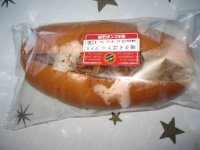

And I even found the low-carb gluten free version.
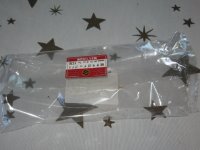
******
A caveat before we continue. There are people in the readership of this blog who know a lot more about Japan than I do. I am sure that I am getting things wrong. It's fun for me to decide why things are the way they are here. But it's all just wild guesses on my part. Scientific wild guesses, maybe. I look at the data, put it together and come up with what seems like the obvious explanation to me. But I do allow room for correction by more experienced travelers. Please chime in if you want, all of you.
OK, that's done. Now back to more of "Professor Supersmarty Explains Japan"
*******
Today’s topic: Days of the week. Japan’s days of the week are just like ours, yet completely different.
Below is a scan from my day calendar:
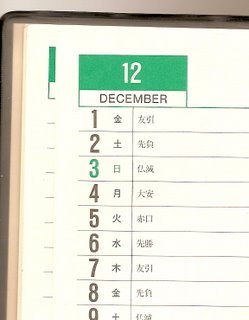
There are two sets of symbols for each day. The single kanji right next to the number, and the double kanji to the right of the line. (Side note. The day marked in green is a Sunday. Saturday is not marked as a day off.... Explains a lot.)
Let’s start with the easy ones. The days of the week are represented by simple elements. The first two are just like ours.
Sunday = Sun (Nichi yohbi)
Monday = Moon (Getsu Yohbi)
Tuesday = Fire
Wednesday = Water
Thursday = Wood
Friday = Metal
Saturday = Earth.
Simple. And with simple Kanji. But we’re not done. Most Japanese calendars have Monday as the first day of the week, which actually makes sense. The weekend then is shown at the end of the week. In your week-at-a-glance, the Saturday and Sunday are together. It’s all pretty sensible.
But we’re still not done.
The kanji pairs on the right of the line repeat in a 6-day cycle of days. They appear on almost every Japanese calendar. It's from a Buddhism, and it's called Rokuyo ('roku' means six, and 'yo' means the same as it does in American slang: "Salutations! Please acknowledge my presence as I acknowledge yours!" or something like that and I believe it's also from a Buddhist tradition.)
I asked a Japanese colleague here to explain Rokuyo for me. Below is the explanation as my colleague wrote it. Pretty interesting.
+++ + + + +++
How are you doing? Here's the things that I found out about Rokuyo (senshou, tomobiki, sakimake, butsumetsu, taian, sekiguchi)
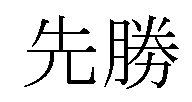
Senshou: First kanji means means before, in advance, ahead. Second one means victory.
So, you rather get things done in the morning not in the afternoon.
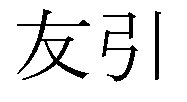
Tomobiki. Fist one means friends. Second one is draw, bring, pull.
So you don't want to have a funual on this day. Cause bad things might happen to your friends.
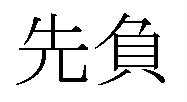
Sakimake. It's the opposite of Senshou. First one means before, in advance, ahead.
Second one means means lose. So you rather get things done in the afternoon.
Ex. I bought a brand new car, Vitz. The day I was going to get my car was . So i went to get my car in the afternoon.
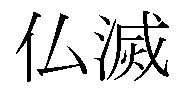
Butsumetsu. First kanji means Budda, God, somebody who are already dead.
Second kanji means perish, fall and ruin.
So it's really bad days like even Budda might perish.
Ex. So nobody wantes to get married on this day. As a matter of fact, if you get married on this day you will get a extra discount for the ceremony for this, cause nobody else wants to get married on this.
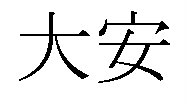
Taian. First kanji means big and a lot. Second one means assurance and safety. So it's considered very nice and very nice day. Lots of people want to get married on this day.
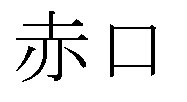
Sekiguchi. First one means red and second one means month, date, cover.
When you use knife and fire, you better whach out, otherwise you might have see the blood.
+++ + + + +++
Back to me now. That last description confuses me because the last kanji is for 'mouth'. So it's red mouth, not month. (Except that I have no idea, and might be completely wrong. See caveat, above.)
My colleague is right about Big Assurance day. One of my calendar pages is a ‘year at a glance’, and they don’t put all the 6-day cycle symbols on the page, only Big Assurance day. If you’re planning a big event, you only care about that day.
So here’s the upshot. The Japanese are more superstitious than most of us. It is strange because we think of them as more logical and superior to us Americans, like Vulcans from Star Trek: smarter, less emotional, if maybe a little funny looking.
But here they are, picking up their cars in the afternoon, carefully planning their weddings, etc., because of this 6-day cycle. Maybe these beliefs are decreasing a bit because of the younger generation and their new fangled MTV and robotic toilets and whatnot, but my colleague who wrote above is probably 10 years younger than I am, and clearly abides by it.
I refrain from calling it ‘superstition’ to Japanese people, because that has the nuance that the belief is foolish. I’m not sure what the right word is. I get the feeling that nobody swears by these things, but that they are also not taking any chances.
In Japan you never say "Today must be my lucky day," because your lucky day is the same as everyone elses, and it's already on the calendar.
******
Like I say here, another weekend, another festival. Last weekend we went to Tsushima, a nearby city. Their autumn festival features centuries old wooden 'floats', which are wheeled about with drummers and flute players inside. The top of the floats feature wooden puppets operated from inside the floats. It's supposed to be fantastic and amazing.
This year, it was wet. The floats were all wrapped in clear plastic and almost none of the puppetry was on display. If we had followed the parade all the way to the shrine, we might have seen more, but we didn't. It was still very nice, and I got to eat some fair food!
Note: the strong faceless man toting our kids in the below mantage is not me (you should be able to tell by the display of upper body strength). Rather it is our friend Damien, here on a business trip.
**************
* * *
Japanese proverb:
Bad and good are intertwined like rope.
* * *
No comments:
Post a Comment